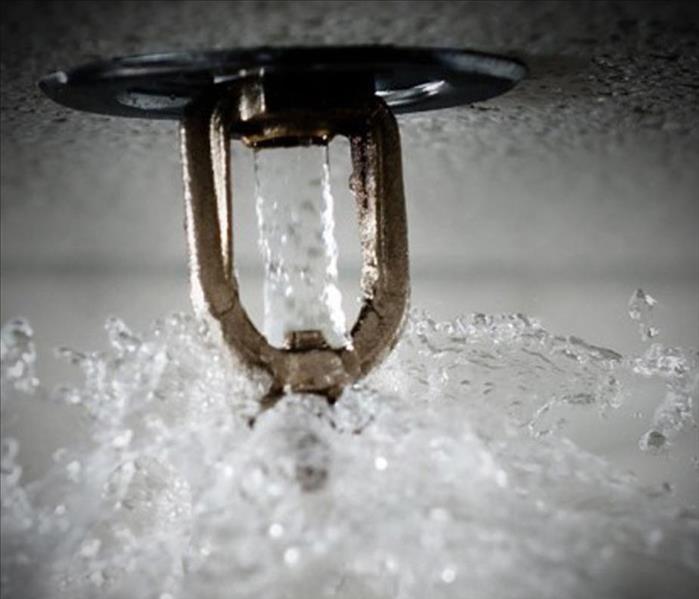Has Your Sprinkler System Been Tested Lately?
1/18/2021 (Permalink)
Water-based fire protection systems, or fire sprinklers, should be kept in excellent working condition and tested periodically to ensure maximum fire suppression capacity especially, during the winter months when falling temperatures can put these systems under a strain. Your sprinklers are your home's or business’s first line of defense in the event of a fire, and it may be mandatory with the continuous updating of building codes to conduct routine tests and inspections.
1. Check the age of your sprinkler system. Modern standards require that sprinkler systems adhere to NFPA 25 requirements, but systems in buildings older than 60 years may be outdated and in need of a full replacement.
2. Check your sprinkler installation. Faulty or defective installation equipment and procedures can lead to sprinkler malfunctions in the event of a fire.
3. Always keep your fire sprinklers clean. Dirty fire sprinklers can lead to obstructions that block the water flow and prevent sprinklers from working correctly, or even from detecting and activating in the event of a fire. Many organizations and inspectors recommend an obstruction inspection every five years.
4. Periodically test your sprinkler functions. Sprinklers can be tested in a variety of ways, including simply testing that they work through routine checks. However, more complex testing such as corrosion testing and hydrostatic testing can uncover additional issues that may not be readily apparent on a simple functional test.
5. Immediately replace defective parts. Because sprinklers are so deeply interconnected, replacing a defective part may require replacing larger sections of the sprinkler system. However, this is highly advisable as a matter of safety to prevent any issues should the sprinklers fail to activate in the event of smoke or fire.
One benefit of fire sprinklers is that fire sprinkler cleanup is usually much less messy than cleanup after fire suppression using stronger means. Sprinklers can make a serious difference in prevention of property losses and safety issues, and should be maintained at all times.





 24/7 Emergency Service
24/7 Emergency Service
